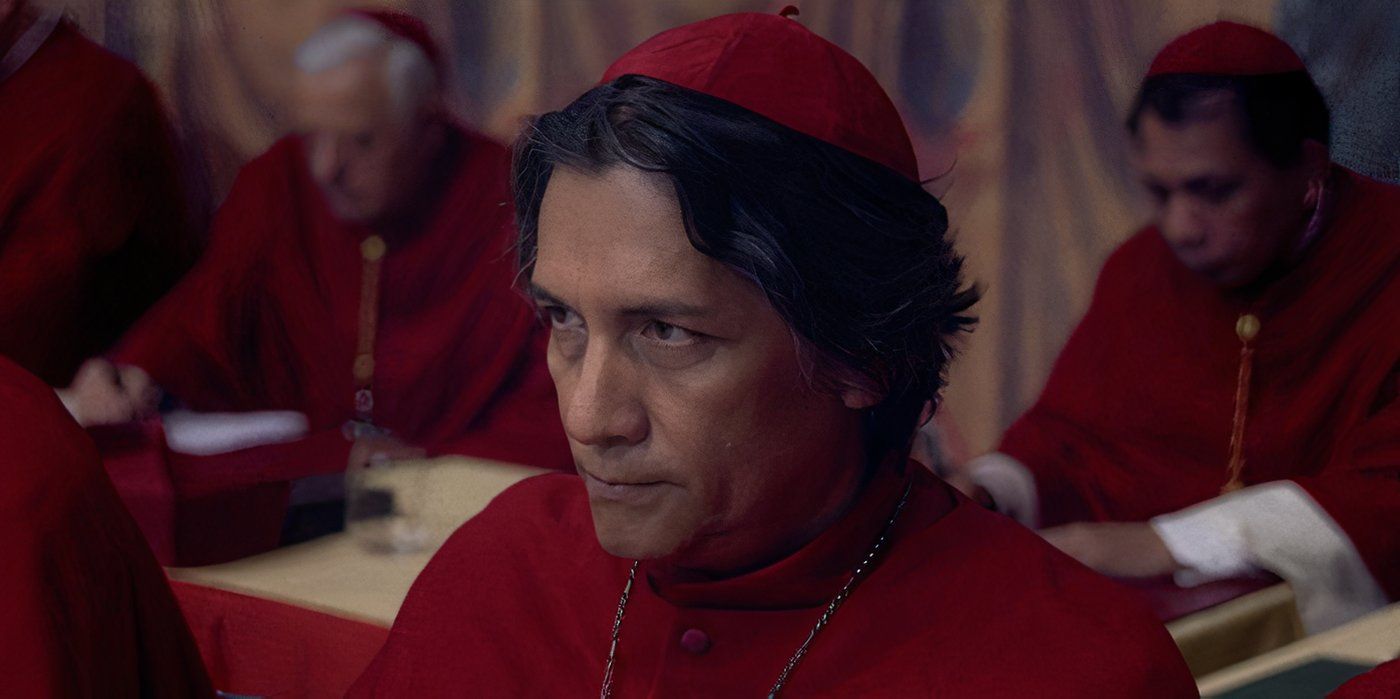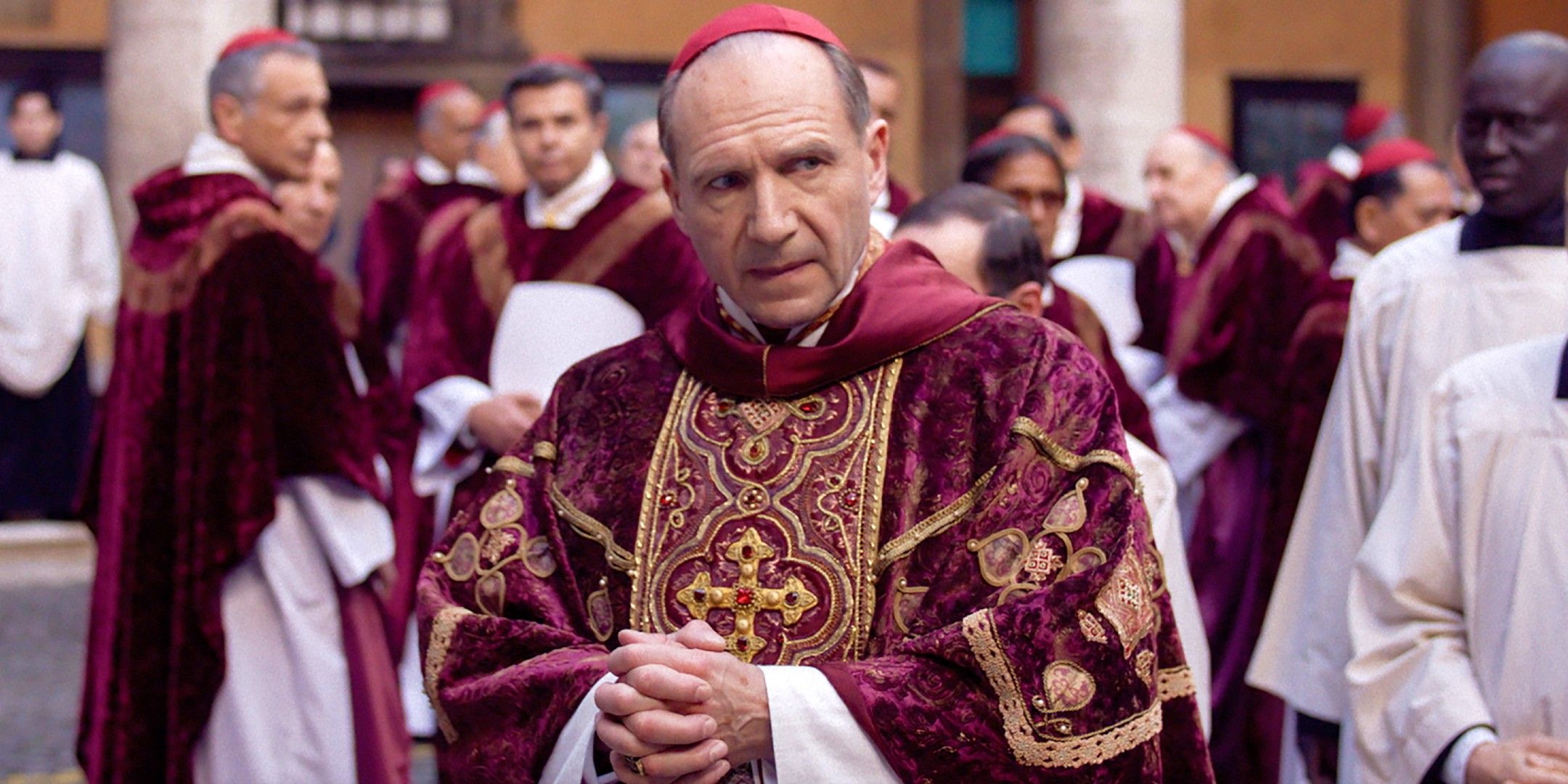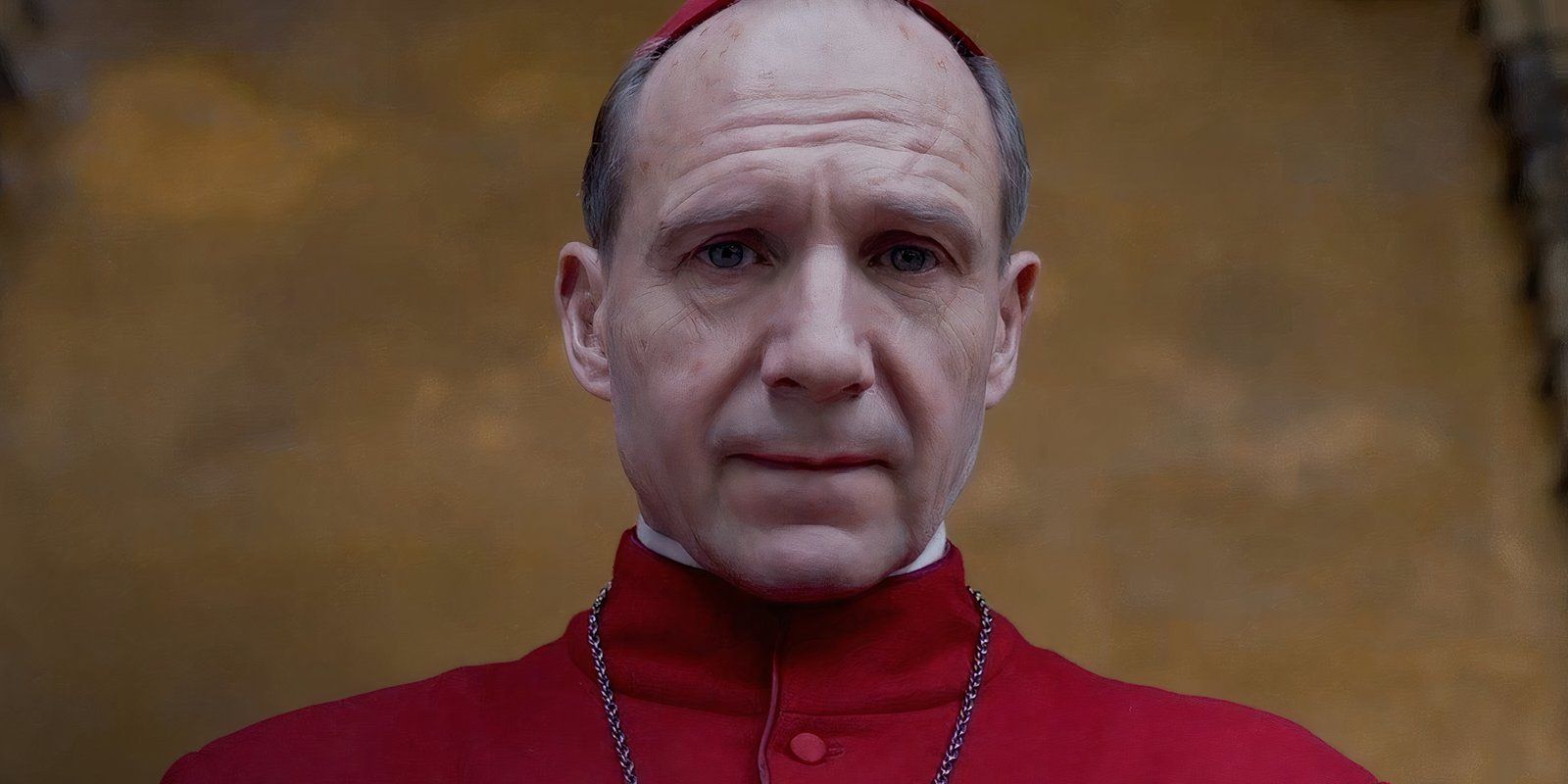
The New Pope’s Secret: Unveiling Its Hidden Meaning
Warning: This post contains spoilers for Conclave
<em>Conclave</em> delivers a thrilling and thought-provoking finale that sparks discussion among viewers. Directed by Edward Berger and based on Robert Harris’s novel, the film has garnered significant acclaim, reflected in its impressive Rotten Tomatoes score and recognition during awards season. The political drama culminates in a conclave that successfully elects a new pope, Cardinal Vincent Benitez, after a protracted process filled with ethical dilemmas and revelations. Cardinal Thomas Lawrence, despite his previous indifference to the papacy, feels a tinge of disappointment at not being selected in the end.
Upon the announcement of Cardinal Benitez as the new pope, but before the public reveal, Cardinal Lawrence pays him a visit after learning of a medical procedure Benitez almost underwent. In a surprising revelation, Benitez shares that he nearly had a hysterectomy but opted against it to honor the person God created him to be. Cardinal Lawrence is taken aback by this disclosure, as he had been unaware of Benitez’s situation, yet he chooses to keep it confidential from the other cardinals. The film concludes with the iconic image of white smoke signaling the successful election of the new pope after several days of seclusion.
Unraveling Cardinal Benitez’s Surprising Secret in Conclave
The Shocking Truth: Cardinal Benitez’s Near Hysterectomy
The unexpected reveal regarding Benitez in Conclave serves as a pivotal twist, establishing him as the first pope in history who was not born male. Cardinal Benitez identifies as intersex and lived his life believing he was male until a traumatic event—a car bomb injury in Afghanistan—led to a medical examination that disclosed he had a uterus. Initially believing this condition disqualified him for the papacy, Benitez offered to step down. However, the pope had a different plan, suggesting that Benitez undergo a hysterectomy instead.
Where To Watch Conclave: Showtimes & Streaming Status
Following rave reviews for Ralph Fiennes’ pope thriller, here are the options for where to watch Conclave in theaters, on streaming, or on digital.
Ultimately, Cardinal Benitez chose not to proceed with the hysterectomy, deciding instead to embrace his identity as God created him. He confided this information only to the pope and his examining physician, keeping his medical history confidential. Despite his classified medical record, Benitez continued his priestly duties, later ascending to the rank of cardinal under the previous pope. Now that he has been elected pope, he may contemplate disclosing his truth to the other cardinals and the wider Catholic community, potentially altering the Church’s perceptions.
The Significance Behind Benitez’s Choice of the Papal Name “Innocent”
Upon his unexpected election, Benitez opts for the name “Innocent,” adhering to a long-standing tradition among popes. The first pope to adopt this name was elected in 401 and is historically recognized for his commitment to strengthening the papacy’s authority. In light of the pervasive corruption themes in Conclave, this name is particularly poignant.
Director Edward Berger articulates that the name symbolizes “a name of purity without any preconceptions,” which starkly contrasts with the other candidates’ moral complexities:
It’s a name of purity without any preconceptions. You see it in children—they have no bad experience; they’re theoretically only positive, only open towards others. They have no prejudices. They’re innocent. Then society conditions them to be a certain way; their parents, school, friends, and bad experiences leave trauma. So Benitez comes to us with absolute openness, and I think that’s what it means.
Understanding Lawrence’s Decision to Protect Benitez’s Secret
The One Secret Lawrence Chooses Not to Disclose
In Conclave, the ensemble cast, comprising eight primary cardinals and Sister Agnes, played by Isabella Rossellini, navigate the complex dynamics of the papal election. Cardinal Lawrence, throughout the film, uncovers the hidden secrets of his fellow cardinals while striving for a fair election. Despite his desire to expose the unethical dealings of the other cardinals, he refrains from disclosing Cardinal Benitez’s truth, primarily because Benitez is already pope at the time Lawrence learns of the secret. Furthermore, Lawrence perceives Benitez as genuinely devout, and revealing his intersex identity would feel like a betrayal.
Believing this disqualified him from his position, he offered to resign, but the Pope instead arranged for Benitez to have a hysterectomy.
Additionally, Lawrence understands that this information is not his to disclose, and revealing it would not alter the outcome of the conclave. The other cardinals are entangled in their own web of blackmail and secrets, much more harmful to their characters than Benitez’s intersex condition. In fact, Benitez’s identity has the potential to foster positive change within the Catholic Church. If the previous pope accepted Benitez as he is, it stands to reason that Lawrence would feel the same.
Director Berger provided insight into the film’s ending, asserting that Lawrence’s realization underscores that the right person ascended to the papacy due to genuine faith and purity, in stark contrast to the other candidates. Speaking to Den Of Geek, he elaborated on Lawrence’s transformative journey regarding the papacy’s role in society:
I think in the end Ralph recognizes the right person becomes Pope. Because it is a person who is pure, who still believes… and I think that’s what it’s more about. To keep the purity, the innocence of your true belief. It doesn’t really matter whether you’re a cardinal or a filmmaker or journalist or an engineer.
This movie is about the oldest patriarchal institution in the world, representing many other patriarchal institutions in the world. And at the end of the movie, there’s a crack in that institution, a crack of perhaps femininity, ya? It’s a crack that a light can shine through, a guiding light for the future, perhaps. And the future is a world where maybe both can exist?
Decoding the Symbolism of Turtles in the Final Shot of Conclave
The conclusion of Conclave features symbolic imagery of turtles, culminating in a significant moment where Lawrence opens a window, allowing light and life back into the Sistine Chapel following the election of the new pope. The sound of three nuns laughing serves as a pivotal moment. Ralph Fiennes, in an interview with Today, shared that the turtles symbolize “spiritual independence,” while co-star Isabella Rossellini, portraying Sister Agnes, highlighted the contrast of the final scene with the closed-off environment of the Sistine Chapel:
Ralph Fiennes: They’re a charming little beautiful animal. Amphibious, and aren’t they sort of symbols of spiritual independence? I think maybe they are.
Isabella Rossellini: I think there is this sense of claustrophobia, because they are all inside the Sistine Chapel. They are secluded, and then when you open up, there is not only the women and the laughter, but there is also the light, the sun, the air, and I think that was the contrast to that moment of great claustrophobia.
Ralph Fiennes: I think there is something in the fact that the claustrophobia is broken and we see three laughing women nuns, and I think that’s a wonderful gesture to end the film after you’ve been confined with all these men for two hours.
Berger echoed Rossellini’s observations regarding the three nuns’ laughter and Lawrence’s symbolic act of opening the window, suggesting it may foreshadow a more inclusive reign under Benitez:
Once that conclave is over, the shutters open, and [Lawrence] opens the window, and lets the air and the sun and life back in. And he hears that feminine laughter of those three nuns. In a way, it’s the future and it evokes a smile on him. It’s the promise of a more egalitarian tomorrow with a Pope who might offer some understanding for all people, no matter their gender or sex.
Benitez’s election as Pope symbolizes a potential shift towards a more hopeful future, underscored by his reasoning for rejecting the hysterectomy:
“It seemed to me more of a sin to change His handiwork than to leave my body as it was. I am what God made me. Perhaps it is my difference that will make me more useful. I think again of your sermon. I know what it is to exist between the world’s certainties.”
Benitez’s position as pope, characterized by his existence “between… certainties,” indicates a potential for moderation and reconciliation within the Church. This outlook could pave the way for progressive changes where issues like political maneuvering and homophobia may become obsolete.
Expert Insights on the Feasibility of Benitez’s Papal Election
Considering Benitez’s hesitance to reveal his “secret” and Lawrence’s decision to keep it under wraps, questions arise about how such revelations would play out in the real Catholic Church. Papal expert David Gibson, Director of the Center on Religion and Culture at Fordham University, weighed in on the potential of an intersex pope, reflecting on the Church’s evolving stance on gender and sexuality:
Yes, an intersex person could be elected pope, just as there have undoubtedly been gay men elected pope. It’s not clear what it would mean though, and I think that’s a real weakness in the film. Robert Harris, it seems, wanted to make a statement about gender and the Catholic Church, which is fine. But it is less a statement than a Rubik’s Cube.
Does the new pope identify as male or female? Does having characteristics of both sexes mean that they can’t be ordained, or become pope? Would such an election be invalid? These become angels-dancing-on-pinhead discussions that distract from the more important issues.
I was in Rome with a group of Fordham students in October for the global meeting of Catholic leaders, called a synod. During that time, Pope Francis met with a group of trans and intersex Catholics. It was a very powerful meeting. The pope’s affirmation of them as created by God with inherent dignity was extraordinarily moving. One of them, Nicole Santamaria, an intersex woman from El Salvador, wrote about her experience and to me, it’s a testimony more powerful than Conclave’s surprise ending.
The Transformation of Cardinal Lawrence’s Aspirations for the Papacy
Cardinal Lawrence’s Evolving Perception of His Role as Pope
Throughout Conclave, Cardinal Lawrence strives to oversee the papal election with a strong sense of impartiality and integrity. This commitment drives him to challenge Cardinal Tremblay when he learns of his unethical actions, especially as Tremblay refuses to acknowledge his wrongdoing. Even though Lawrence does not seek the papacy, he finds himself in the running due to his steadfast neutrality and the support of Cardinal






